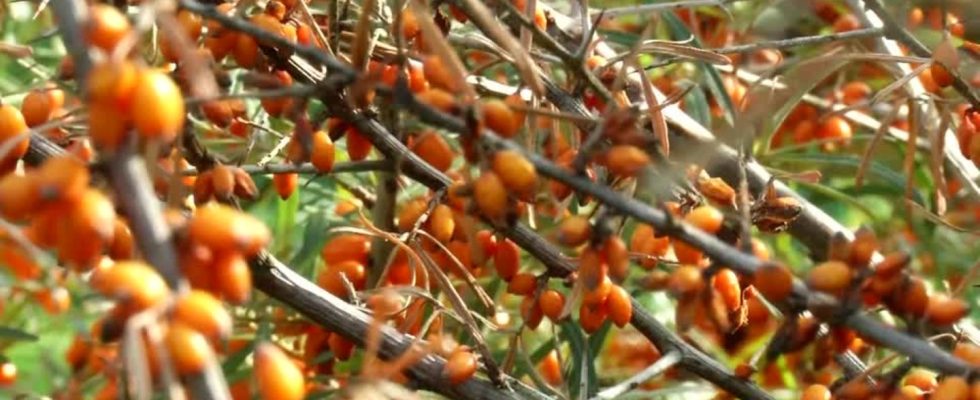Watch the video: Sea buckthorn dieback poses a puzzle for fruit growers and researchers.
Is it an illness? A parasite? Or is it the dryness? In recent years, a mysterious cause has destroyed large populations of sea buckthorn. Along the Baltic Sea coast, like here near Markgrafenheide, the precarious situation of the plant cannot be overlooked: withered bushes on and behind the dunes. In Werder, west of Berlin, there are still fruit-growing sea buckthorn bushes that bear bright orange fruits. These contain many times as much vitamin C as a lemon and are rich in secondary plant substances and other vitamins. Even though his business was spared, fruit farmer Andreas Berger is of course interested in the causes. “Apparently it can’t be explained to me because the sea buckthorn dies under a wide variety of conditions. So, it has nothing to do with the cultivation of the soil. It has nothing to do with the fact that it grows on the dune or grows on the highway or grows here . So there are factors that we don’t know yet.” These need to be scientifically researched so that the remaining sea buckthorn growers can look to the future with optimism again, hopes Berger, whose daughter continues to process the harvest herself. Employees at the Mecklenburg-Western Pomerania State Research Institute for Agriculture and Fisheries are currently taking the harvest very seriously. Fruits are separated from branches and leaves by hand. Everything is weighed and analyzed in the laboratory. For example, the aim is to investigate what effects different amounts of irrigation have on the growth and condition of plants. Biologist Frank Hippauf admits that sea buckthorn is not the robust plant it was long thought to be. As a pioneer, he only initially has a location advantage in sandy coastal regions thanks to a symbiosis with a bacterium. “It needs really good lighting conditions, tolerates little weed pressure, and when other plants come over time, i.e. the soil is more or less consolidated, so to speak, then the other plants come in little by little. Then it usually disappears because it doesn’t exist at all is so competitive.” According to Hippauf, there is currently no clear cause for the death of sea buckthorn. Either way, you won’t have to do without sea buckthorn products. Because it is also grown in Mongolia, Tibet and Siberia.

